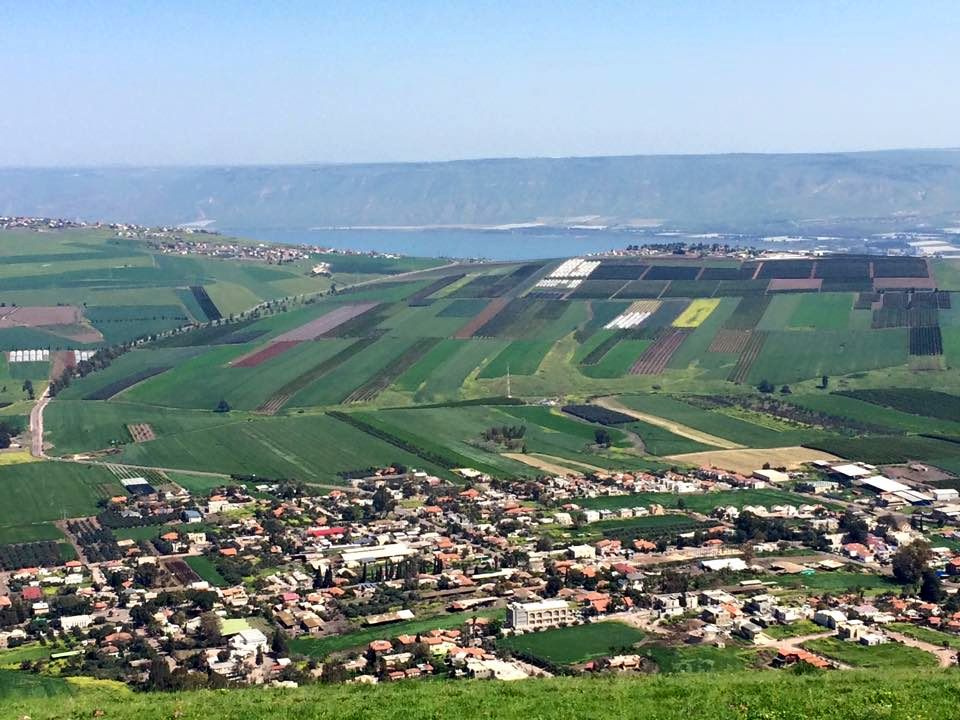In fact, every day that the State of Israel, even to this day, exists in the hostile Middle East, is a miracle. How could this be? With so many millions of Muslims who are hostile to our presence here, and with so many wars and terror attacks against this little State, we not only survive, we also thrive and prosper, against all odds, against human reason, and countries from the far flung corners of the world come here to establish Innovation Centers - to employ Israelis to think and develop new ideas for them. Three Japanese technology giants have already opened Development Centers here, including Mitsui and Hitachi, and Mitsubishi declared a few days ago that it is going to do the same soon. In synagogues this coming Shabbat, after reading from the Torah, we will also read from the Prophet Hosea: "And it shall come to pass that, instead of that which was said unto them: 'You are not My people', it shall be said unto them: 'You are the children of the living G-d'." (Hosea 2:1 - in Christian translations it appears in Hosea 1:10). It is SO fitting!!
Yesterday I was privileged to attend a very special event. It started with a WhatsApp message that was posted in one of the groups. It said: "Rene Zlotkin, an Auschwitz survivor and one of the Mengele twins, is coming from New York to Jerusalem today with his daughter, to bury his twin sister. They don't have much family in Israel, so anyone who can, please come to be there with them." The funeral was at Mt. of Olives. I debated whether to go or not because it was such a hot day yesterday (36 Celsius...), but I decided to go. When I arrived, I realized it was the right thing to do. Other people came too, which made me happy, but there were not that many of us, so every person who was there made a difference.
We walked from the "7 Arches Hotel" to the back of the mountain in the east - a stunning, gorgeous area that I've never visited before. When we reached the family plot, they opened the car where Irene's body was, and her brother, husband and daughter said their eulogies, without reading, just speaking from their heart, crying while they did so. After coming back from the funeral, I wrote the following, and I share it with you:
Rene Zlotkin and his sister Irene were
inseparable throughout their lives. Together they were born in Czechoslovakia
on the same day in 1937, together they were deported by the Nazis with their
mother to Theresienstadt, then to Auschwitz, and together they were taken to
the notorious clinics of Dr. Mengele, where they were subjected to inhumane
experiments. Though they lost their mother in the war, they both managed to survive,
rebuild their lives and start beautiful, thriving Jewish families.
Irene, who suffered tremendously due
to the experiments done on her body, passed away yesterday in America at the
age of 82. Her family in America chose to bring her to burial in Jerusalem, in the
family plot on Mt. of Olives today. Since they do not have a lot of family and
acquaintances in Israel, Israelis who have heard about it came to the funeral
to accompany Irene on her last journey.
Rene, who eulogized his sister
before the burial, said: “We were together since we were born. We were in Auschwitz
together, we came out of there together, we were in New York together, we went
to the same schools, but yesterday morning, when we found out that she was no
longer here – for me the whole world wasn’t the same, the whole world was different,
changed.” Later, he added to a small circle of people around him: “When we came
to Jerusalem today, and I was looking around me, I realized that we are part of
an ancient chain, that we are the continuation of this chain, and seeing the
rebuilt Jerusalem made it clear to me. It moved me a lot. I’ve looked at
Jerusalem today and seen it like I’ve never seen it before. Not just with my
eyes. With my heart”.
One of Irene’s daughters told the
crowd that her mother’s favorite song was Naomi Shemer’s Yerushalayim shel Zahav
(Jerusalem of Gold). After the burial was over and the prayers were said, the
crowd stayed standing around her grave and sang for her the song that she so loved,
on the backdrop of the beautiful golden hills of Jerusalem, the city of her
final rest.
In Memory of Irene Hizme, Rivka
Yocheved bat Zvi Meir.
Here is a short video from a couple of years back in which Rene tells a bit about his holocaust experiences, in a very bright, faithful attitude:
Shabbat Shalom!
R.

